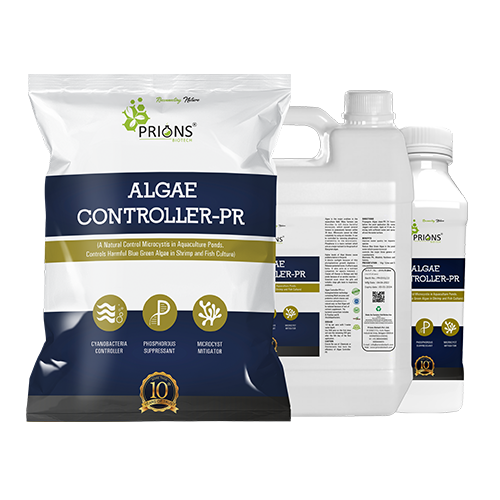In the domain of environmental science and sustainability, the role of probiotic and testing lab manufacturers is indispensable. These manufacturers specialize in producing cutting-edge solutions aimed at promoting environmental health, enhancing agricultural productivity, and ensuring public safety. This article explores a diverse array of probiotic and testing lab manufacturers, including Algae Control Probiotic Manufacturers, Soil and Water Testing Lab Manufacturers, Lactobacillus Probiotics Manufacturers, and more, showcasing their innovative products and technologies that are revolutionizing environmental management.
Algae Control Probiotic Manufacturers
Harnessing Nature's Power to Combat Algal Blooms
Algae Control Probiotic Manufacturers develop microbial formulations specifically designed to mitigate algal blooms in aquatic ecosystems. These probiotics target harmful algal species while promoting the growth of beneficial microorganisms, restoring ecological balance and improving water quality.
Sustainable Solutions for Water Management
By utilizing probiotics for algae control, manufacturers offer sustainable alternatives to chemical treatments, minimizing environmental impact and preserving aquatic habitats. These probiotics enhance natural bioremediation processes, reducing the reliance on harmful algaecides and promoting long-term ecosystem health.
Soil and Water Testing Lab Manufacturers

Ensuring Environmental Safety through Comprehensive Testing
Soil and Water Testing Lab Manufacturers provide essential services for assessing environmental quality and identifying potential contaminants. These labs employ state-of-the-art analytical techniques to detect pollutants, assess soil fertility, and monitor water quality, ensuring compliance with regulatory standards and safeguarding public health.
Empowering Environmental Stewardship
Through accurate and reliable testing services, manufacturers empower individuals, businesses, and government agencies to make informed decisions regarding land use, resource management, and pollution prevention. Soil and water testing labs play a crucial role in promoting environmental stewardship and sustainable development.
Lactobacillus Probiotics Manufacturers
Enhancing Agricultural Productivity and Soil Health
Lactobacillus Probiotics Manufacturers specialize in developing bacterial strains that improve soil fertility, enhance nutrient uptake, and suppress harmful pathogens in agricultural ecosystems. These probiotics promote plant growth, increase crop yields, and reduce the need for chemical fertilizers and pesticides.
Sustainable Agriculture for a Greener Future
By incorporating Lactobacillus probiotics into agricultural practices, manufacturers support sustainable farming methods that prioritize soil health, biodiversity, and ecosystem resilience. These probiotics contribute to the preservation of natural resources and the promotion of regenerative agriculture.
Nitrosomonas and Nitrobacter Manufacturers
Optimizing Nitrogen Cycling for Environmental Sustainability
Nitrosomonas and Nitrobacter Manufacturers produce bacterial cultures essential for nitrification, a crucial process in the nitrogen cycle. Nitrosomonas oxidize ammonia to nitrite, while Nitrobacter convert nitrite to nitrate, ensuring efficient nitrogen removal from soil and water environments.
Balancing Nutrient Dynamics in Aquatic Ecosystems
By providing Nitrosomonas and Nitrobacter cultures, manufacturers facilitate nutrient cycling in aquatic ecosystems, preventing nutrient imbalances, and reducing the risk of eutrophication. These bacteria play a vital role in maintaining water quality and supporting diverse aquatic life.
Natural Vitamin C and Aqua Binding Gel Manufacturers
Promoting Health and Sustainability in Aquaculture
Natural Vitamin C and Aqua Binding Gel Manufacturers offer innovative products designed to enhance the health and resilience of aquatic organisms. Natural Vitamin C supplements boost immune function and reduce stress in fish and shrimp, while Aqua Binding Gels improve water quality and reduce ammonia toxicity.
Advancing Sustainable Aquaculture Practices
By incorporating natural supplements and aqua binding gels into aquaculture operations, manufacturers promote sustainable practices that prioritize animal welfare, environmental health, and food safety. These products support the growth of healthy, disease-resistant aquatic populations, ensuring the long-term viability of aquaculture systems.
Conclusion
Probiotic and testing lab manufacturers play a vital role in advancing environmental sustainability and promoting public health. Whether it's controlling algal blooms, ensuring soil and water quality, or enhancing agricultural productivity, these manufacturers offer innovative solutions that address complex environmental challenges. By harnessing the power of probiotics, testing technologies, and natural supplements, we can build a cleaner, healthier future for generations to come.
Frequently Asked Questions - Algae Control Probiotic
Probiotics for algae control work by promoting the growth of beneficial microorganisms that compete with harmful algal species for nutrients and resources, thereby reducing algal bloom formation and improving water quality.
Soil and water testing labs can detect a wide range of contaminants, including heavy metals, pesticides, organic pollutants, and microbial pathogens, through comprehensive analytical techniques and testing protocols.
Lactobacillus probiotics improve soil fertility, enhance nutrient uptake by plants, suppress harmful pathogens, and promote overall crop health and productivity. These probiotics support sustainable agriculture practices and reduce reliance on chemical inputs.
Nitrosomonas and Nitrobacter bacteria play key roles in nitrification, converting ammonia to nitrite and nitrite to nitrate, respectively. This process helps regulate nutrient levels in water environments, preventing eutrophication and supporting aquatic biodiversity.
Natural supplements such as Vitamin C boost immune function and reduce stress in aquatic organisms, while aqua binding gels improve water quality and reduce ammonia toxicity, promoting healthier and more resilient aquaculture systems.
